2024-2025 Research Fellows

Ethan Barkalow (PhD Candidate)
Ecology, Colonialism, and Malaria in Korea under Japanese Rule, 1910–1945
Personal Bio: Ethan Barkalow (he/him/his) joined the History PhD program in 2022. His dissertation project investigates environmental and social changes in the coastal communities of imperial Japan and colonial Korea. His work highlights the interdependence between marine industries, labor, and fisheries science across the Japanese archipelago and Korean peninsula. He earned his B.A. from Bowdoin College in 2018 with a major in History and Environmental Studies and a minor in Japanese. After living in Japan for two years teaching English at elementary schools, Ethan received an M.A. in East Asian Studies from Yale University in 2022.
Project Description: This study examines the ecological influences on the malaria problem during the Japanese colonial occupation of Korea (1910–1945). Widespread interventions into the natural environment like intensified wetland rice agriculture and the reclamation of coastal and marshy waters presumably affected how, and how often, Koreans and Japanese settlers were exposed to malaria. The expansion of wetland rice farming increased the habitat for mosquitoes as well as the frequency of contact between humans and anopheles mosquitoes. The study will explore how and why projects in agriculture, industry, and infrastructure changed Korea’s malaria landscape and, within limits, how this compares to other instances of malaria in colonial contexts, such as British-occupied India and U.S.-occupied Puerto Rico.
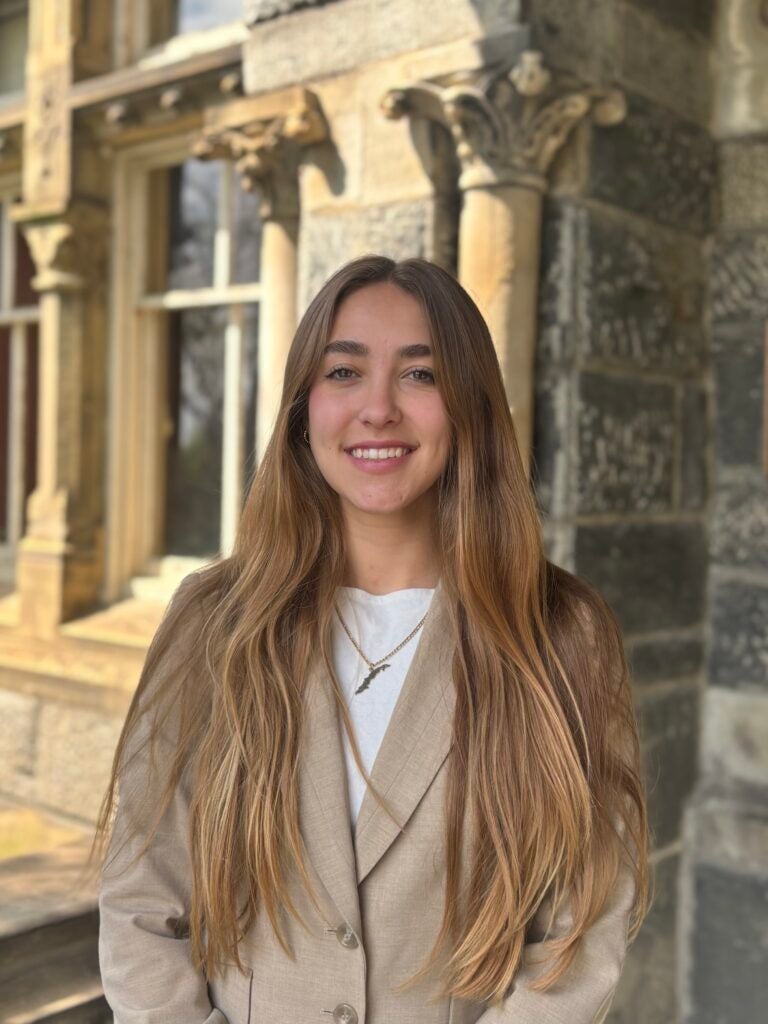
Logan Castellanos (SOH ’25)
Negotiating Empowerment in the Digital Age: Theory and Understandings Within Menstrual Tracking Applications
Personal Bio: Logan Castellanos (she/her) is a senior in Georgetown’s School of Health studying Healthcare Management and Policy on the policy track. Passionate about the intersection of health and ethics, her thesis explores menstrual tracking applications in a post-Roe era. Logan has a deep interest in equitable health policy and the ethical responsibilities of governance, leading her to seek out advocacy roles with La Clínica del Pueblo and the Centers for Disease Control and Prevention.
Project Description: This thesis seeks to understand user perceptions of empowerment within menstrual tracking applications within an increasingly criminalized and exploitative reproductive health system. Menstrual tracking applications are consistently marketed as tools of empowerment for menstruating individuals, yet there is limited discussion of a theory of empowerment within academic literature. This thesis aims to uncover a general understanding of empowerment as it applies to day-to-day users of menstrual tracking applications and whether true empowerment through the usage of such applications is possible in a post-Roe society.

Aaron Gray (PhD Candidate)
Universal Design and Materially Embedded Oppression
Personal Bio: Aaron Gray is a PhD candidate in Philosophy at Georgetown. His work spans bioethics, social epistemology, social and political philosophy, and philosophy of disability, and his research currently focuses on features of physical spaces which enable and constrain agency.
Project Description: This project seeks to explore contemporary philosophical work in disability related to universal design, arguing that it depends on an implausibly idealized account of how material spaces can be arranged.
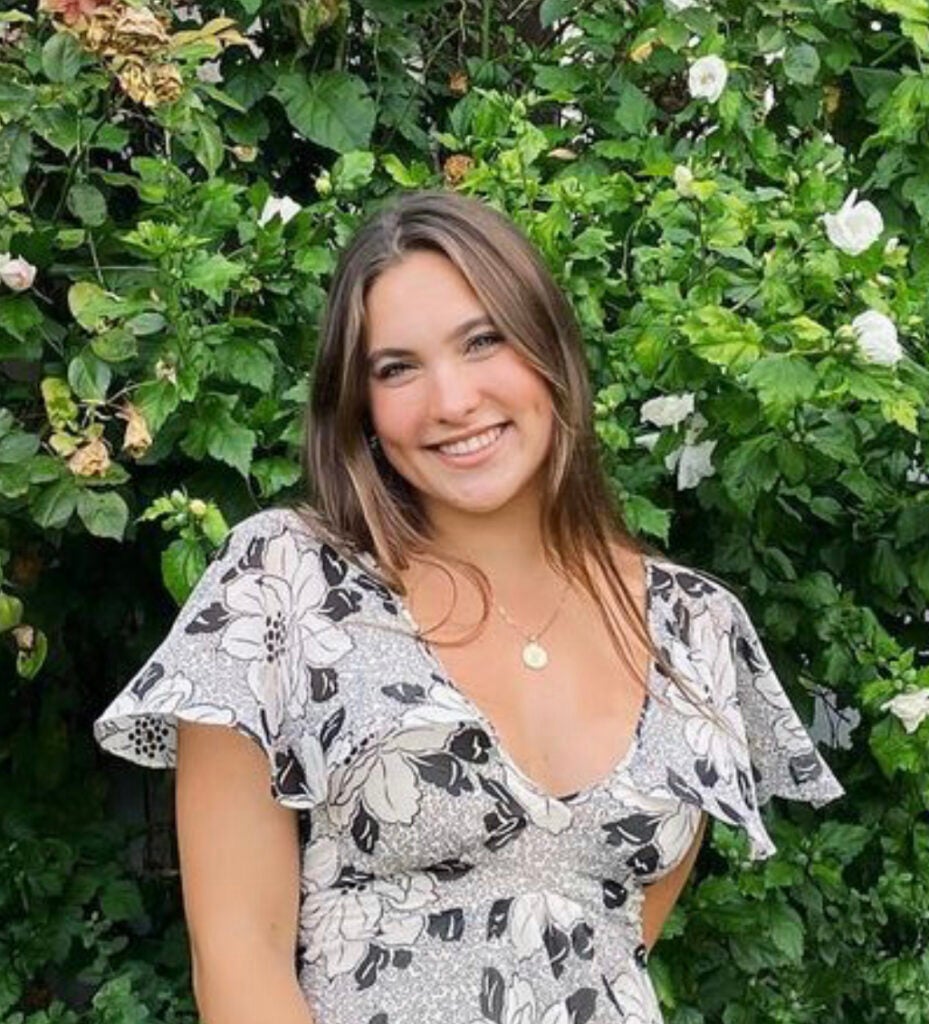
Lily Gremmels (CAS ’25)
An analysis of the accessibility of the French public health care system to those experiencing homelessness in France; notably, where it supports and fails the French homeless population
Personal Bio: Lily Gremmels is a senior in the College of Arts and Sciences, majoring in French and minoring in Public Health, on the Pre-Medical track. She will be applying to medical school this spring. Her love for the French language stems from a K-12 education in an immersion school system. Along with her coursework, she conducts cancer research on Chimeric Antigen Receptor T-cell therapy (CAR-T). She is a member of Georgetown’s Swim and Dive Team and focuses her extracurriculars on assisting the unhoused population of D.C.
Project Description: Throughout the writing of my French Research Thesis, I have analyzed the capacity of the French universal health care system to provide consistent, quality care for their unhoused population. I had correctly anticipated that they would have increased accessibility to care in comparison to a private healthcare system, such as the United States. Additionally, I found that the treatment they received from medical professionals was equal to the treatment received by the housed population. But, despite the availability of high quality treatment, barriers remain that prevent access, which I discuss in detail in my thesis. Essentially, the conclusion I determined at the end of my research was that despite having a strong healthcare system in place and universal healthcare coverage, the inherent reality of being unhoused results in a faster health deterioration than the healthcare system is equipped to manage. Barriers to technology, making appointments, transportation, communication, and follow-up care are exacerbated by homelessness, and stand in stark opposition to establishing continuous care and health care coordination.
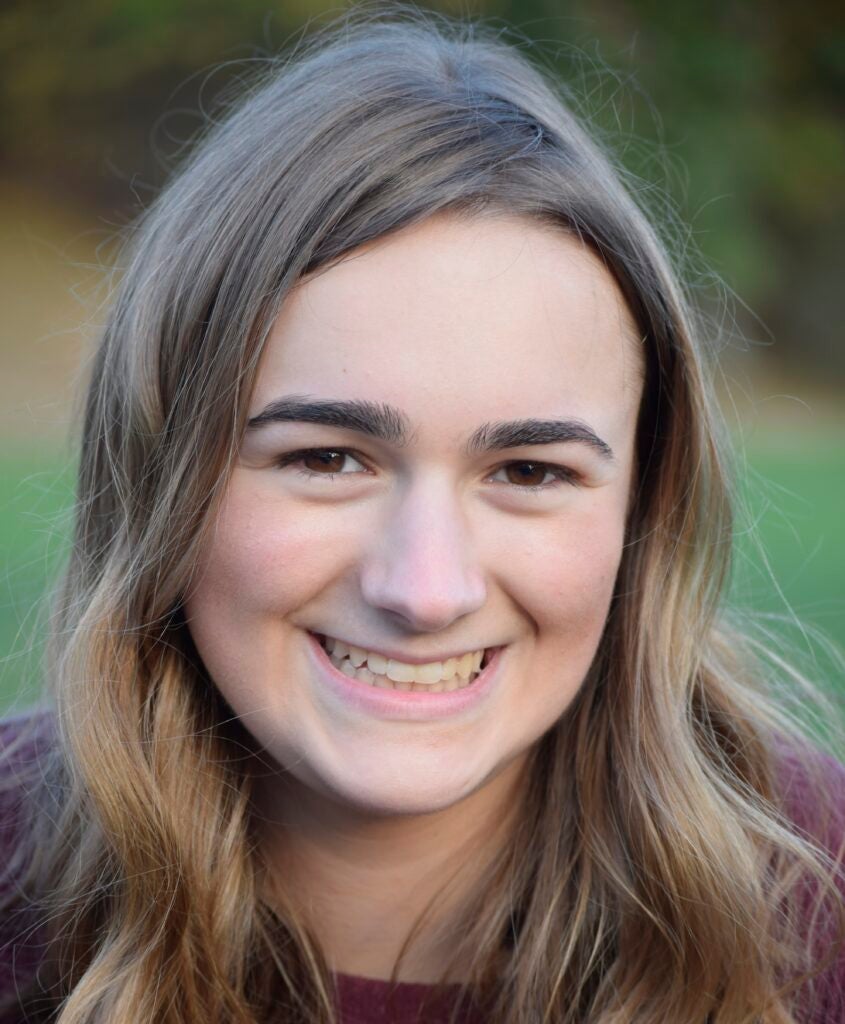
Amber Mickelson (CAS ’25)
Brain Injury and Violence Across the Atlantic: Researching, Reporting, and Understanding
Personal Bio: Amber Mickelson is a senior in the College majoring in Neurobiology with a minor in Medical Humanities. Outside of the classroom, she studies Dengue and Zika virus with the Department of Microbiology and Immunology. In her free time, she grills burgers with the Georgetown University Grilling Society. Amber will be attending the Georgetown University School of Medicine starting this fall.
Project Description: In 1848, construction foreman Phineas Gage was nearly killed when an iron rod was shot through his head by an explosion. Though he recovered, his change in behavior following the accident led to the conclusion that he was “no longer Gage.” Sociological and scientific research has provided evidence that traumatic brain injuries like Gage’s go hand-in-hand with changes in behavior, personality, and a tendency toward rage and violence. My research has uncovered more than 70 cases of changed personality and violent behavior following brain injury, showing that history too can provide insight into how physicians in history think about the brain and behavior.
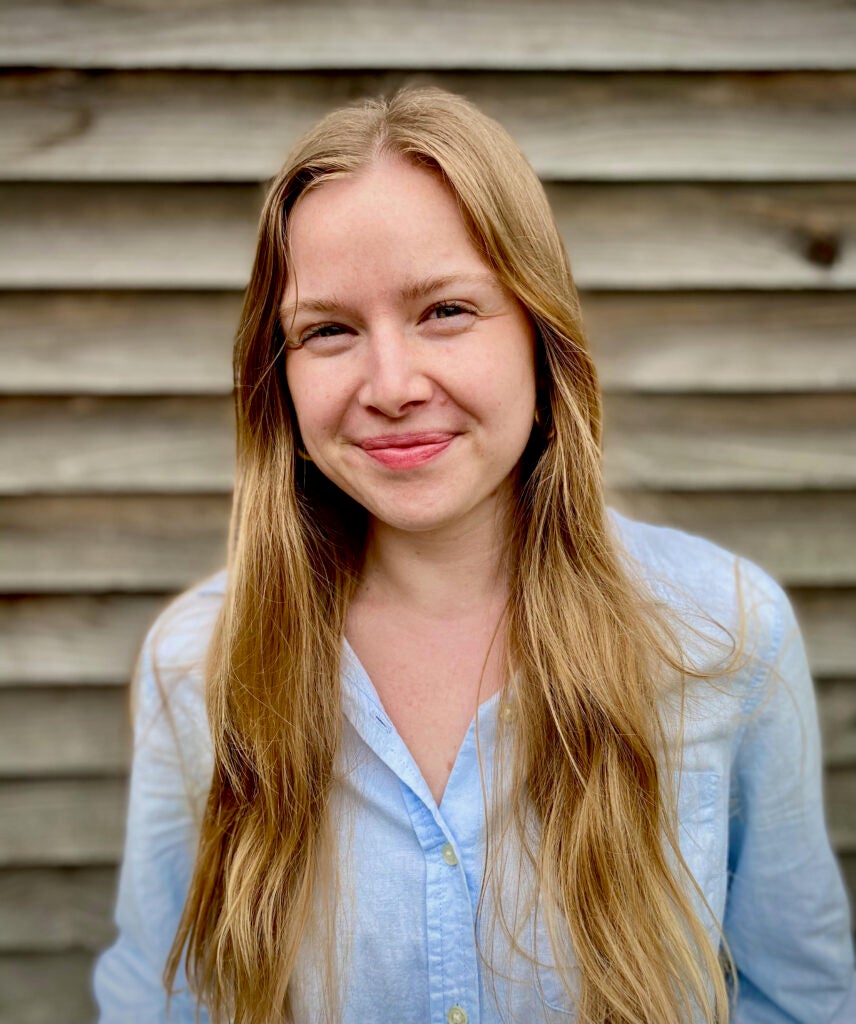
Emma C. Moesswilde (PhD Candidate)
Women and Seasonal Medical Expertise in the
Atlantic Household of the Long Eighteenth Century
Personal Bio: Emma C. Moesswilde is a doctoral candidate in the Department of History at Georgetown University. Her dissertation project, “Everyday Climate Change: Seasons and Gender in the Rural British Northern Atlantic, 1690-1816,” traces the interconnected histories of seasons, rural communities, and gender in agricultural ecosystems across the British Northern Atlantic world in the long eighteenth century. Born and raised in midcoast Maine, Emma has lived and worked in rural communities and environments and is committed to employing multidisciplinary and collaborative methods to understand rural communities’ past and present responses to climate change.
Project Description: This project investigates the gendered expertise of women in seasonal household medicine from 1690-1816 in the Atlantic world. It asks how seasonal rhythms informed women’s work as caregivers, particularly in the context of medical treatment and embodied care of families and communities. The long eighteenth century saw significant seasonal variability as part of the “Little Ice Age,” (LIA), a hemispheric period of cooling below twentieth-century averages that was also characterized by extreme weather events, drought, and storminess. Despite the climatic turbulence of the period, rural communities in outposts of the British empire in Scotland and northern New England often responded dynamically to seasonal-scale climate change. This project examines domestic spaces and the labor undertaken within them to explore how medical knowledge facilitated and contributed to these flexible climate responses.
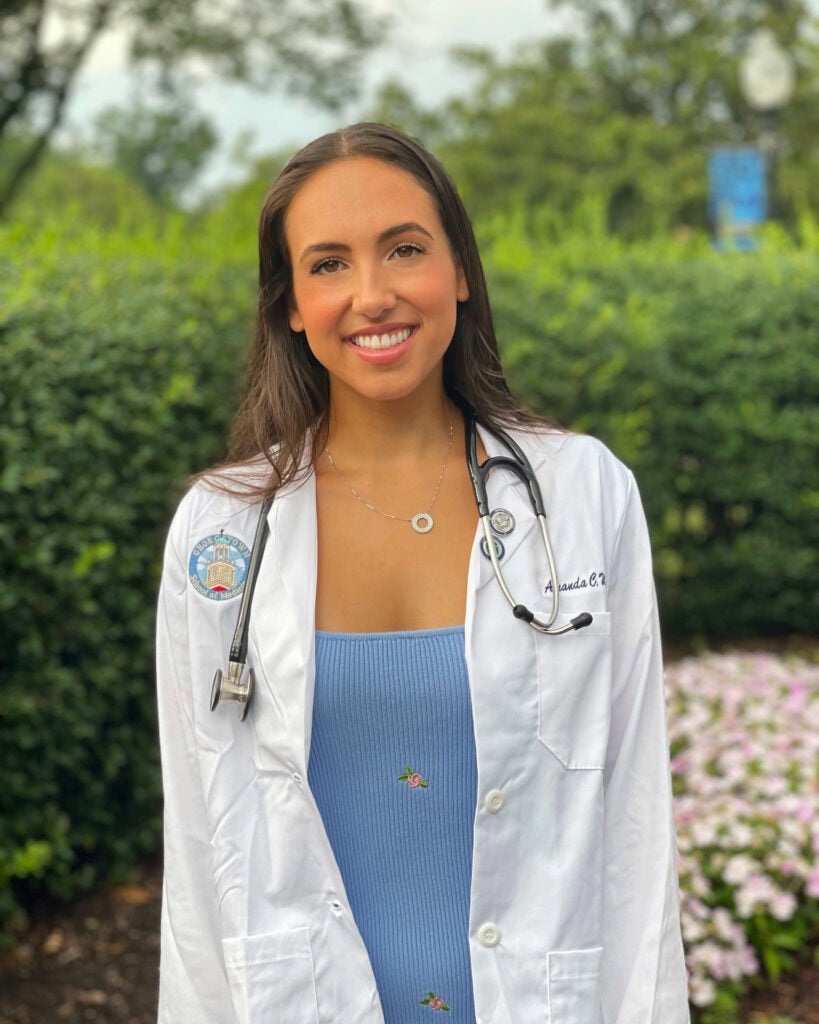
Amanda Wibben (MD Candidate)
Voices of Refugees: The Invisible Doctors
Personal Bio: Amanda Wibben is a fourth-year medical student who is passionate about immigrant and refugee health and global health equity. After graduating with a degree in Biology and Religious Studies, Amanda spent a year teaching English in India before moving to Boston to earn her Masters in Theological Studies. Amanda’s passion for health justice has been shaped by Jesuit ethics, inspired by feminist movements, and humanized by her international experiences. She hopes to apply her skills as a future obstetrician by serving patients internationally through direct care and policy change related to maternal health and women’s labor rights.
Project Description: Refugee physicians are refugees that have been trained in medicine in a country outside the United States. After seeking refuge in the US, most of these doctors are unable to practice medicine as a result of their international licensure and often work in non-medical fields or in healthcare-associated at levels well below their expertise, experience, and training. As refugee physicians hold unique strengths including multi-language fluency, cultural awareness and sensitivity, and a depth of understanding of issues that refugee patients face, there is a need for analysis of the barriers that prevent refugee physicians from practicing in the US, especially considering the US’s intensifying physician shortage.
Should refugee physicians desire to continue their practice in America, they must first overcome a number of obstacles, including passing the United States Medical Licensing Examinations (USMLEs) and matching into a US MD residency program. This study is the next step in determining how best to allocate resources and funding to better assist refugee physicians in their pursuit of a career in medicine in the US. Standardized interviews with refugee physicians in the DMV area were conducted in addition to collection of participants’ CVs and demographic data. Following the interviews, a quantitative and qualitative analysis of CVs, transcripts and questionnaires was conducted using coding software to identify common themes from refugee physicians’ responses. Results indicate that the most common challenges facing physician refugees are overwhelming logistical, followed then by Psychological and Social. Humanitarian Crisis and Perceived Cost, and Time Constraints were the most prominently highlighted logistical challenge subcategories. Despite the challenges that were discussed at length, refugee physician strengths and passion for medicine were also prominent themes from the interviews.
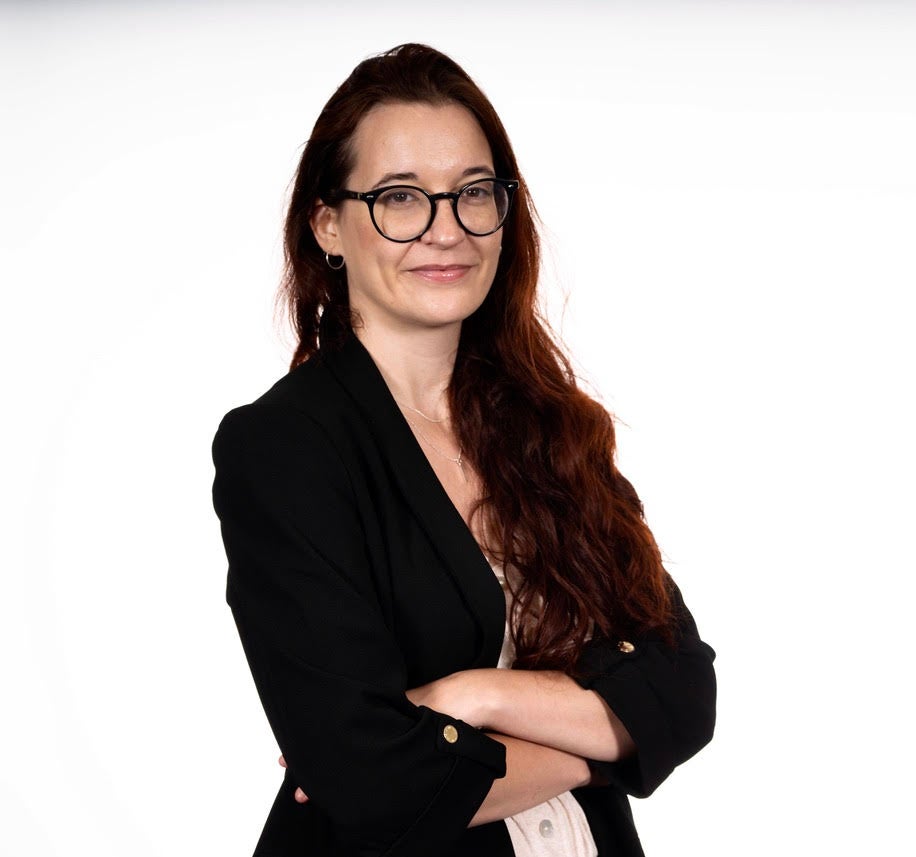
Montserrat García Rodenas
Iberian Hydronarratives: Water and Rural Resistance in Contemporary Spain
Personal Bio: Montserrat García Rodenas (she/her/ella) recently obtained her PhD in the Spanish and Portuguese Department, and she is also a teaching assistant in the Global and Comparative Literature program at Georgetown University. Her dissertation, “Audiovisual Geography of the Ruination of the National Iberian Landscape in the 20th-21st Century,” examines how Spanish novels, documentary films, photographs, archives, and graphic novels portray the degradation of Spain’s rural and urban landscapes. Her second research project examines how current water crises and environmental degradation in Mediterranean regions are mirrored in the bodies of their inhabitants.
Project Description: This research project examines 20th&21st-century hydronarratives—novels, films, and visual artworks—that depict Mediterranean water systems (rivers, dams, lagoons) and water-management practices to uncover the profound interdependence between Spanish rural communities and their aquatic environments. Specifically, it investigates how writers, filmmakers, and artists employ metaphors, symbols, and narrative tropes to convey the urgency of water-related crises, such as droughts, floods, contamination, and sea-level rise. Through this analysis, the study aims to reveal how these cultural works capture not only the environmental degradation but also its cascading human toll, especially focused on the psychological trauma (anxiety, grief) and physical harm (illness, displacement) inflicted on rural populations by water scarcity or pollution, together with economic precarity (e.g., collapsed agriculture) and social fragmentation (migration, intergenerational conflicts, etc.). By bridging environmental humanities and cultural studies, this project underscores how hydronarratives amplify marginalized voices and reframe water crises as legacies of inequality.

